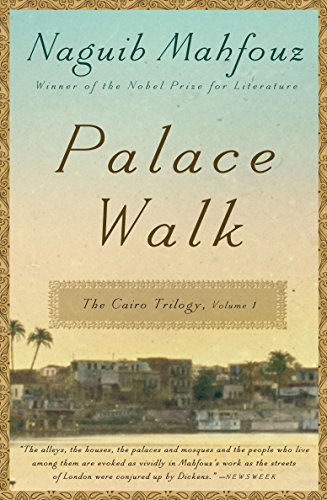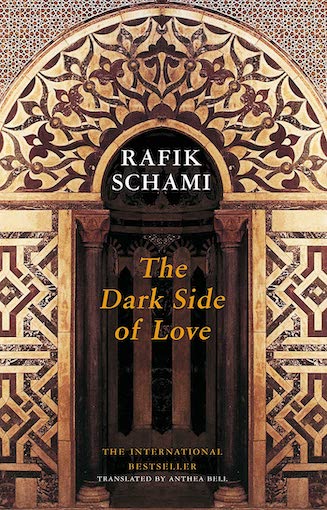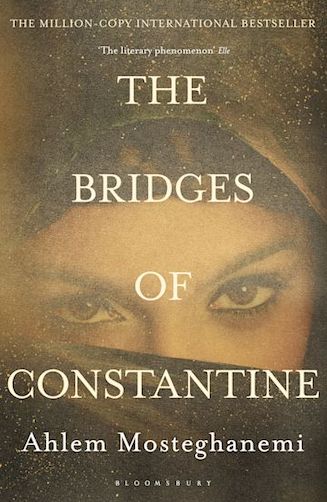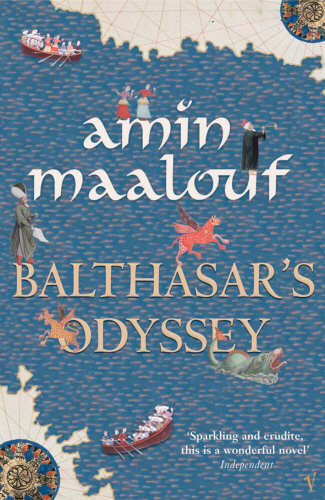In a new take on our Books coverage this weekend, Philip Cottam turns his hand to explore the writers and writing styles from the Middle East, and recommends four titles in any must-have reading list…
This review is more of a brief introduction to the rich array of fiction produced by novelists in the Arab world. It is not just intended to extend the reading of those who were tempted by a previous review to read Alaa Al Aswany’s latest novel The Republic of Small Truths, or even his earlier novel The Yacoubian Building mentioned briefly in the that review. Hopefully, it will encourage others to put their toe into the increasingly flourishing waters of the novel that began to spread through the world of Arab literature during the 20th century.
It is perhaps somewhat ironic that despite their great tradition of poetry and storytelling – of which Kahlil Gibran’s poem The Prophet and the stories of the One Thousand and One Nights are the most obvious and well-known examples in the West – it took the influence of European ideas on the late 19th Century intellectual renaissance in the Arab world for the literary form of the novel to be absorbed into their culture, especially in Egypt. As with the best novels in the Western literary canon so the best Arab novels also open a window onto society exposing and illuminating its customs, traditions and struggles – social, political and religious – whether in the Maghreb or Dhofar, Cairo or Damascus, Algiers or Baghdad.
 The writers I have selected are all well established with a significant Arab readership. Having been successfully published in English translations they also have a wide following in the west. They come from across the Arab world – Egypt, Algeria, Syria and Lebanon – and, as is typical for many Arab writers, only one of them, Naguib Mahfouz, was able to conduct his career from within his home country. This reflects the on-going struggles within so many Arab societies centred around dictatorial politics, the rise of Islamic fundamentalism and the controversial influence of western social liberalism, in particular over the role and position of women in society.
The writers I have selected are all well established with a significant Arab readership. Having been successfully published in English translations they also have a wide following in the west. They come from across the Arab world – Egypt, Algeria, Syria and Lebanon – and, as is typical for many Arab writers, only one of them, Naguib Mahfouz, was able to conduct his career from within his home country. This reflects the on-going struggles within so many Arab societies centred around dictatorial politics, the rise of Islamic fundamentalism and the controversial influence of western social liberalism, in particular over the role and position of women in society.
The doyen of modern Arab writers is undoubtedly the Egyptian Nobel Prize winner Naguib Mahfouz (1911-2006). His output was prolific and included novels (of which he wrote over 30) short stories, plays and film scripts. With the exception of a failed assassination attempt by an Islamic fundamentalist in 1994 Mahfouz was able to live out his life in safety in Cairo his home city. His three most well-known novels, certainly so outside Egypt, comprise The Cairo Trilogy: Palace Walk, Palace of Desire and Sugar Street. It is a rich three-generation family saga set against the background of Egypt under British rule.
The central character is a domineering patriarch who leads a secret life of excess amidst the tempestuous atmosphere of Egypt between the two world wars. The novels shine a light on the contradictory influences at play in Egyptian society through the lives of his offspring as they fall under the influences of communism, Islamic fundamentalism, nascent Egyptian nationalism in the wake of the 1919 uprising and wild social excess in their attempts to break free from the control of the family patriarch. As far as social excess is concerned Cairo was certainly as much a city of the Roaring Twenties as were London, New York, Berlin and Paris. Mahfouz tells good stories peopled with well observed characters who illuminate not just human frailty but also the impact of political and cultural change on daily life.
 The experience of Rafik Schami (1946), a Syriac-Christian, was very different. He left his home country for Germany in 1970 to escape censorship, the draft and the increasingly militarised rule of the Ba’ath Party that became the dictatorship of Hafez al-Assad in 1971. Schami has remained in Germany ever since and now writes in German. Indeed, he is celebrated in Germany as one of its most important current writers and has been honoured with many prizes. That said, most of his books are set in Syria and frequently in Damascus. Indeed, Rafik Schami, the pseudonym he writes under, means ‘friend from Damascus’.
The experience of Rafik Schami (1946), a Syriac-Christian, was very different. He left his home country for Germany in 1970 to escape censorship, the draft and the increasingly militarised rule of the Ba’ath Party that became the dictatorship of Hafez al-Assad in 1971. Schami has remained in Germany ever since and now writes in German. Indeed, he is celebrated in Germany as one of its most important current writers and has been honoured with many prizes. That said, most of his books are set in Syria and frequently in Damascus. Indeed, Rafik Schami, the pseudonym he writes under, means ‘friend from Damascus’.
His wonderful book The Dark Side of Love has at its heart a Shakespearean saga of the vendetta between two Syrian-Christian clans, the blighted love between two of their offspring and a murder investigation that opens a door on the patrimonial clan and religious divisions of Syrian society and the violence of Syrian politics. At the same time, it is also a social history of Syria across three generations as well as a homage to what was, until recently, the fascinating multi-faith and multi-cultural city of Damascus. If you enjoy The Dark Side of Love and want to read more about Syria and Damascus, I recommend either The Calligrapher’s Secret or Damascus Nights.
 Ahlam Mosteghanemi (1953) is an Algerian novelist who moved to Paris with her Lebanese husband in order to complete her university studies after they were brought to a halt in Algeria by the misogynistic culture she encountered at the university of Algiers where she was refused permission to enrol for her Masters degree. She had already established a reputation for herself in 1973 with the publication of On the Harbour of Time, the first collection of poems written by a woman in Arabic. That a woman should be writing in Arabic was regarded as almost sacrilegious, especially one who was writing so boldly about feminist issues.
Ahlam Mosteghanemi (1953) is an Algerian novelist who moved to Paris with her Lebanese husband in order to complete her university studies after they were brought to a halt in Algeria by the misogynistic culture she encountered at the university of Algiers where she was refused permission to enrol for her Masters degree. She had already established a reputation for herself in 1973 with the publication of On the Harbour of Time, the first collection of poems written by a woman in Arabic. That a woman should be writing in Arabic was regarded as almost sacrilegious, especially one who was writing so boldly about feminist issues.
Ahlam is highly regarded for her lyrical style and her fearlessness in confronting the challenges women face in Islamic societies. Her prize-winning novel The Bridges of Constantine is a superb evocation of Algeria over some four decades as it fought to liberate itself from French rule, then struggled to build a new independent country as different factions sought to impose their visions of what that might be, and their ideals became compromised by the bargains of day-to-day politics.
The story is narrated through the voice of Khaled, a wounded former soldier of the National Liberation Front (FLN), now an artist in Paris where he has been in exile, consumed by his memories and his sense of loss at what he sees his beloved country to have become. It is also a complex and tragic love story as he unexpectedly meets Hayat, the daughter of his old FLN commander, now a successful, independent young woman. The novel is the first part of a trilogy entitled Memory in the Flesh and is followed by The Chaos of the Senses and Bed Hopper. They are all worth reading.
Amin Maalouf (1949) is Lebanese and comes from a strong Catholic and French influenced background. His father was a Melkite Greek Catholic and his mother a Maronite Catholic. His education had a heavy French influence as he attended a French Jesuit school in Beirut and then the French university in Beirut. When the bitter Lebanese civil war broke out in 1975 he emigrated to France where he built a highly successful career as an academic and novelist. His two most successful non-fiction books are The Crusades Through Arab Eyes and the essay In the Name of Identity.
 The former is a fascinating read even though its academic credentials have been criticised by some. His novels mostly have a historical background and involve some kind of odyssey or quest. They are also influenced by the tragedies that have afflicted Lebanon and by his own experiences as a migrant. These influences are equally present in his essay on the nature of identity. Balthasar’s Odyssey follows the quest in the 17th Century of a Genoese in his search for a book The Hundredth Name which reputedly contains the hundredth sacred name of God, the other ninety-nine being found in the Koran. Maalouf’s story takes Balthasar on a turbulent journey through the Ottoman Empire, Italy and to England. As with his other novels there is a philosophical underpinning. In this story it starts with the widespread belief that 1666 would see the apocalypse promised in the Book of Revelation, the fear that this engendered and the responses to that fear. The human element of the story is that of the burgeoning relationship between Balthasar and Marta, who seeks a certificate confirming the death of her disappeared husband.
The former is a fascinating read even though its academic credentials have been criticised by some. His novels mostly have a historical background and involve some kind of odyssey or quest. They are also influenced by the tragedies that have afflicted Lebanon and by his own experiences as a migrant. These influences are equally present in his essay on the nature of identity. Balthasar’s Odyssey follows the quest in the 17th Century of a Genoese in his search for a book The Hundredth Name which reputedly contains the hundredth sacred name of God, the other ninety-nine being found in the Koran. Maalouf’s story takes Balthasar on a turbulent journey through the Ottoman Empire, Italy and to England. As with his other novels there is a philosophical underpinning. In this story it starts with the widespread belief that 1666 would see the apocalypse promised in the Book of Revelation, the fear that this engendered and the responses to that fear. The human element of the story is that of the burgeoning relationship between Balthasar and Marta, who seeks a certificate confirming the death of her disappeared husband.
Maalouf often uses his characters to represent different sides of an argument or to represent different aspects of a struggle for identity. This is even true of his most personal novel Ports of Call, the first of hiw stories to be set in the 20th century. It is centred on the marriage of a Muslim man and a Jewish woman against the background of a divided Middle East in the aftermath of the Second World War. In some ways it is a return to his essay on identity but in novel form. His characters are less nuanced than those of a Mahfouz but his writing is nonetheless thought provoking.
For those who would like to immerse themselves more deeply in the culture and history of the Arab world I would strongly recommend two books. The Anglo-Lebanese historian Albert Hourani’s wonderful A History of the Arab Peoples is a good starting point. It ranges far and wide, is full of penetrating insights, is especially good on the culture of Arab society and is beautifully written. Eugene Rogan’s The Arabs, A History is a more recent book and is especially good on politics since the end of the Second World War.




